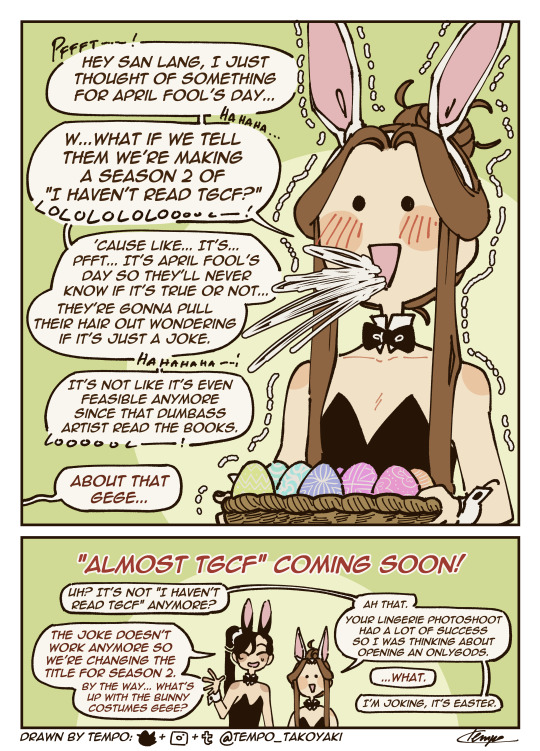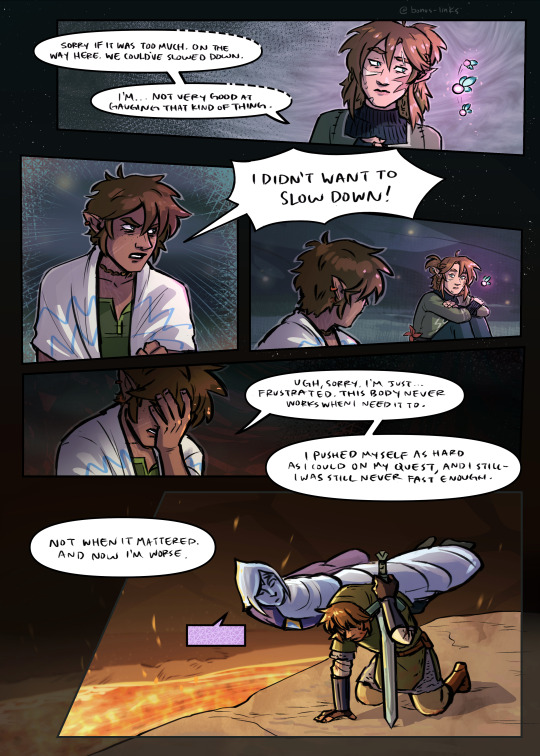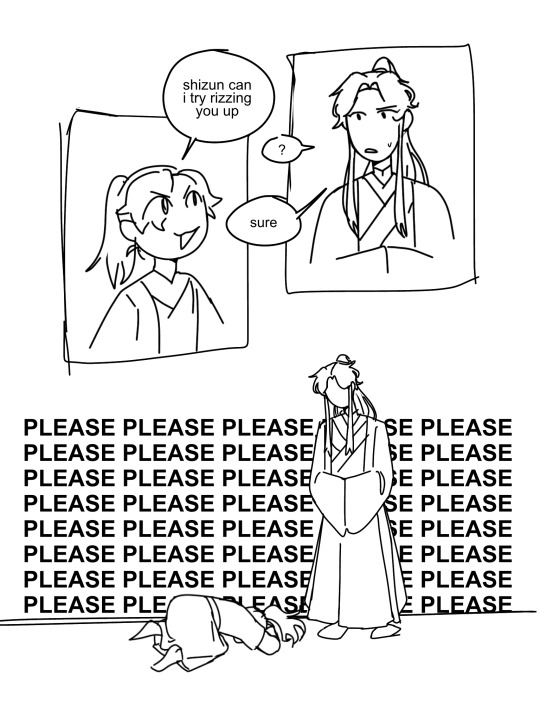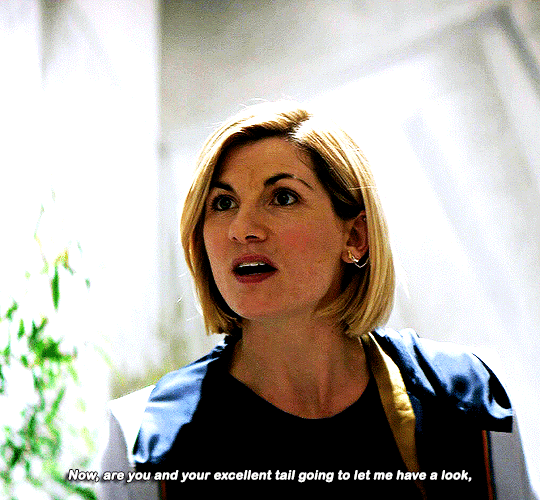#well not thousands
Text

#podfic#marvel#gen fic#spider man#cast of thousands#well not thousands#but a lot#all the heroes you can imagine#crack treated seriously
0 notes
Text

i love knowing basic css
#skull css saga#1k#2k#3k#this is well on its way to becoming my most popular holy shit??#4k#my most popular#5k#6k#holy fuck#6.969k haha#you all have my express permission to not percieve this post#9.99k help#10k#10 FUCKING THOUSAND WHAT#15k#hall of fame#skull curse sillyboy#gnomeantics original 🌟
20K notes
·
View notes
Text
ngl, I'm beginning to take issue with how in conversations about anti-intellectualism almost automatically, the face of girls and women will be slapped on the problem.
#'all those tiktok girls who only like marvel films and' - why do you always say girls and women? are the guys filling opera halls instead?#'women in their mid 20s who still only read YA novels' okay sure that's an example and relevant discussions can be had#but it reminds me of the mocking tone in which people speak of 'chick-lit' to use women's interest as an indicator of lower value#while in fact women are reading more than men in EVERY single genre of fiction. Women are doing a lot of (often unpaid) labour#supporting libaries supporting theatres supporting cultural events#meanwhile there is a pretty big overlap between toxic masculinity and anti-intellectualism#(especially misogyny and homophobia)#especially when it comes to things like ballet or opera or musical or generally dance#in fact it is often the female investment in specific things that makes them less 'valuable' in general consciousness#for thousands of years the theatre was well-respected and a high form of art - and now it's a 'wife-thing'#the father who will teach his son that theatre and dance are for girls - how is that never an example for anti-intellectualism
16K notes
·
View notes
Text
I recall saying this before, but it bears repeating:
There could be a billion trans people in the world and it still wouldn't be a bad thing because being trans is not a bad thing. Even if the rate of people discovering they are trans is "disproportionate" to trends from decades ago, that is not a bad thing. In fact, it's a natural consequence for there being more trans people being able to stay alive, and, overall, being able to live in a slightly more tolerant world. You'd only see that as a bad thing if you actively didn't want trans people to either live or live a life that facilitates wellness.
#trans#transgender#lgbt#lgbtq#ftm#mtf#nonbinary#like even with there being more OPEN AND OUT trans people there are still more cis people by volume#even in my high school with three trans girls and three trans guys (including me) and a few NB people...#...there were still a THOUSAND cis kids going to school with us. imagine complaining when cis people are still 'dominant'#i don't know what my secondary school's population is because it's a big campus so you can deal with high school stats lol#like thank gd we are beginning to live in a world where the trans population CAN grow#i want there to be more trans people. because trans people will continue to be trans#we will continue being trans no matter what laws you put into place. no matter how dangerous you make the world for us...#...we will continue to be trans whether or not you approve. and that's fucking beautiful. i want us to live. i want us to eat well.#i want us to not worry about anything in this world. and that's going to happen one day. it will happen just like the sun rises each morning#if that is a threat to you then that is your own fault - your own self-destructive and sad thoughts about people and our world#and that is not my burden to carry - i have my own.
3K notes
·
View notes
Text
christ sometimes I just wanna. steal a time machine & go back & sit down next to my 9-year-old self and just like. let them pull out their pokemon card binder & gush about their holographic gyarados or whatever. I'd just smile & ask questions about motherfukcing bulbasaur & tell my kid self that I thought they were a neat person, & someday they'd find other people who thought so too.
like i'm a grown adult who honestly finds most kids stuff boring, but. damn if i could go back & hang out with my baby self & listen to them ramble...just so they knew someone was listening. i would in a heartbeat. thinking about u kid
#wouldn't roll my eyes or check my phone or get bored or nothing#I'd just listen to that little dork & smile & encourage them & let them explain how their favorite gameboy games worked#i was the kind of kid my adult self would find annoying & uninteresting but like#most of the actual adults in my childhood felt that way too. including my dang parents.#and ya know sometimes they showed it. a lot of times without realizing it. and that messes a kid up#if you don't make an effort kids WILL recognize your disinterest and lack of attention.#kids deserve to have caregivers who show interest and engagement#even when it's over stuff that adults find boring. especially then maybe#your kid doesn't have to be fun or interesting or easy or well behaved to deserve positive attention#they deserve positive attention because they are YOUR KID#if love is unconditional then DISPLAYS of LOVE and AFFECTION must also be unconditional#not something that must be earned#telling your kid that you love them is not enough. that is step one out of like a thousand#if you just tell your kid you love them but you don't demonstrate affection and interest and patience and warmth and etcetera#your kid isn't gonna feel loved! I Love You will just become a trite phrase that they regard with mistrust!#bitch you gotta FOLLOW THROUGH
11K notes
·
View notes
Text
hm sometimes i wish i was one of those people who moves thousands of miles away and never looks back and has a ton of adventures unmoored from their past and where they’re from but i can’t help looking back and i’m deeply, fervently defined by every person, thing, or place i’ve ever loved
#‘people who like their hometown are lame’#okay well maybe im lame and i love a lot!#i am thousands of miles from home and i love it and i hate it#and i’ll never be at peace!
35K notes
·
View notes
Photo

٩(´•⌢•` )۶⁼³₌₃
#princess peach#paper mario#paper mario the thousand year door#i posted this on twitter and it did well so i think it should be on here too#nintendo#gif
2K notes
·
View notes
Text
sometimes I think of all the on-the-surface warm, well-meaning but deeply ineffectual advice and attention john gives harrow through harrow the ninth (make some soup and get some sleep! get a hobby! don't be so hard on yourself! self care harrow! as long as I need take no actual responsibility in this relationship whatsoever I would have loved to be your dad!) set up against the stark truth that with his other hand he has been staging her attempted horrific murder again and again and again like a living nightmare on the logic that it will 'put her down or fix her'. and then I find that I wish there is a hell. a special hell where twitch streamers turned necromantic death emperors go
#the locked tomb#harrowhark nonagesimus#john gaius#harrow the ninth#this is why I don't buy john as misunderstood and initially well-meaning AT ALL#this is a pattern you see with him again and again and again -- right down to his interpersonal relationships#(and indeed it's in the more grounded interpersonal relationships you can most clearly see him as he is I think#the fantasy death empire of a thousand years doesn't register quite as viscerally because it's like. heightened; not quite real#but the emotional violence and manipulation that surrounds him? oh boy that is EXTREMELY real and scarily well-observed)#there's a premeditation to so much of what he does (contracts with planets that only end 'in the event of the emperor's death' anyone?#yeah john we get it you're hilarious and I wish you weren't)#the greatest trick john ever pulled was making anyone think he's just a lil guy. what does he know he's only god#when you first read the book the complete callousness of the other adults is so horrible that john seems like an oasis of care#(though you start to get this uneasy feeling when that care never seems to translate to like... relief or soothing or resolution)#and it makes it feel almost obscene when you find out what's actually going on#it's the mercy & augustine enabler hour but at least they're completely honest in their cruelty there#while john is -- well he sure is being john huh#this is just me being angry with him btw philosophically I don't think this is how the story will or should end#(with john slam dunked right into hell that is)#it's just... harrow is so vulnerable. and what he does to her is so insidious and fucked up#john is very deeply human. unfortunately the capacity to quite simply suck so much is deeply human too
1K notes
·
View notes
Text
I love edgy ass unsociable fictional men 99% of the time theyre literally just autistic
13K notes
·
View notes
Text
None Of You Know What Haiku Are
I'm going to preface this by saying that i am not an expert in ANY form of poetry, just an enthusiast. Also, this post is... really long. Too long? Definitely too long. Whoops! I love poetry.
If you ask most English-speaking people (or haiku-bot) what a haiku is, they would probably say that it's a form of poetry that has 3 lines, with 5, and then 7, and then 5 syllables in them. That's certainly what I was taught in school when we did our scant poetry unit, but since... idk elementary school when I learned that, I've learned that that's actually a pretty inaccurate definition of haiku. And I think that inaccurate definition is a big part of why most people (myself included until relatively recently!) think that haiku are kind of... dumb? unimpressive? simple and boring? I mean, if you can just put any words with the right number of syllables into 3 lines, what makes it special?
Well, let me get into why the 5-7-5 understanding of haiku is wrong, and also what makes haiku so special (with examples)!
First of all, Japanese doesn't have syllables! There's a few different names for what phonetic units actually make up the language- In Japanese, they're called "On" (音), which translates to "sound", although English-language linguists often call it a "mora" (μ), which (quoting from Wikipedia here) "is a basic timing unit in the phonology of some spoken languages, equal to or shorter than a syllable." (x) "Oh" is one syllable, and also one mora, whereas "Oi" has one syllable, but two moras. "Ba" has one mora, "Baa" has two moras, etc. In English, we would say that a haiku is made up of three lines, with 5-7-5 syllables in them, 17 syllables total. In Japanese, that would be 17 sounds.
For an example of the difference, the word "haiku", in English, has 2 syllables (hai-ku), but in Japanese, はいく has 3 sounds (ha-i-ku). "Christmas" has 2 syllables, but in Japanese, "クリスマス" (ku-ri-su-ma-su) is 5 sounds! that's a while line on its own! Sometimes the syllables are the same as the sounds ("sushi" is two syllables, and すし is two sounds), but sometimes they're very different.
In addition, words in Japanese are frequently longer than their English equivalents. For example, the word "cuckoo" in Japanese is "ほととぎす" (hototogisu).
Now, I'm sure you're all very impressed at how I can use an English to Japanese dictionary (thank you, my mother is proud), but what does any of this matter? So two languages are different. How does that impact our understanding of haiku?
Well, if you think about the fact that Japanese words are frequently longer than English words, AND that Japanese counts sounds and not syllables, you can see how, "based purely on a 17-syllable counting method, a poet writing in English could easily slip in enough words for two haiku in Japanese” (quote from Grit, Grace, and Gold: Haiku Celebrating the Sports of Summer by Kit Pancoast Nagamura). If you're writing a poem using 17 English syllables, you are writing significantly more content than is in an authentic Japanese haiku.
(Also not all Japanese haiku are 17 sounds at all. It's really more of a guideline.)
Focusing on the 5-7-5 form leads to ignoring other strategies/common conventions of haiku, which personally, I think are more interesting! Two of the big ones are kigo, a season word, and kireji, a cutting word.
Kigo are words/phrases/images associated with a particular season, like snow for winter, or cherry blossoms for spring. In Japan, they actually publish reference books of kigo called saijiki, which is basically like a dictionary or almanac of kigo, describing the meaning, providing a list of related words, and some haiku that use that kigo. Using a a particular kigo both grounds the haiku in a particular time, but also alludes to other haiku that have used the same one.
Kireji is a thing that doesn't easily translate to English, but it's almost like a spoken piece of punctuation, separating the haiku into two parts/images that resonate with and add depth to each other. Some examples of kireji would be "ya", "keri", and "kana." Here's kireji in action in one of the most famous haiku:
古池や 蛙飛び込む 水の音
(Furu ike ya kawazu tobikomu mizu no oto)
(The old pond —
A frog jumps in
The sound of the water.)
You can see the kireji at the end of the first line- 古池や literally translates to "old pond ya". The "ya" doesn't have linguistic meaning, but it denotes the separation between the two focuses of the haiku. First, we are picturing a pond. It's old, mature. The water is still. And then there's a frog! It's spring and he's fresh and new to the world! He jumps into the pond and goes "splash"! Wowie! When I say "cutting word", instead of say, a knife cutting, I like to imagine a film cut. The camera shows the pond, and then it cuts to the frog who jumps in.
English doesn't really have a version of this, at least not one that's spoken, but in English language haiku, people will frequently use a dash or an ellipses to fill the same role.
Format aside, there are also some conventions of the actual content, too. They frequently focus on nature, and are generally use direct language without metaphor. They use concrete images without judgement or analysis, inviting the reader to step into their shoes and imagine how they'd feel in the situation. It's not about describing how you feel, so much as it's about describing what made you feel.
Now, let's put it all together, looking at a haiku written Yosa Buson around 1760 (translated by Harold G. Henderson)
The piercing chill I feel:
my dead wife's comb, in our bedroom,
under my heel
We've got our kigo with "the piercing chill." We read that, and we imagine it's probably winter. It's cold, and the kind of cold wind that cuts through you. There's our kireji- this translation uses a colon to differentiate our two images: the piercing chill, and the poet stepping on his dead wife's comb. There's no descriptions of what the poet is feeling, but you can imagine stepping into his shoes. You can imagine the pain he's experiencing in that moment on your own.
"But tumblr user corvidcall!" I hear you say, "All the examples you've used so far are Japanese haiku that have been translated! Are you implying that it's impossible for a good haiku to be written in English?" NO!!!!! I love English haiku! Here's a good example, which won first place in the 2000 Henderson haiku contest, sponsored by the Haiku Society of America:
meteor shower . . .
a gentle wave
wets our sandals
When you read this one, can you imagine being in the poet's place? Do you feel the surprise as the tide comes in? Do you feel the summer-ness of the moment? Haiku are about describing things with the senses, and how you take in the world around you. In a way, it's like the poet is only setting a scene, which you inhabit and fill with meaning based on your own experiences. You and I are imagining different beaches, different waves, different people that make up the "our" it mentioned.
"Do I HAVE to include all these things when I write haiku? If I include all these things, does that mean my haiku will be good?" I mean, I don't know. What colors make up a good painting? What scenes make up a good play? It's a creative medium, and nobody can really tell you you can't experiment with form. Certainly not me! But I think it's important to know what the conventions of the form are, so you can appreciate good examples of it, and so you can know what you're actually experimenting with. And I mean... I'm not the poetry cops. But if you're not interested in engaging with the actual conventions and limitations of the form, then why are you even using that form?
I'll leave you with one more English language haiku, which is probably my favorite haiku ever. It was written by Tom Bierovic, and won first place at the 2021 Haiku Society of America Haiku Awards
a year at most . . .
we pretend to watch
the hummingbirds
Sources: (x) (x) (x) (x) (x) (x)
Further reading:
Forms in English Haiku by Keiko Imaoka
Haiku: A Whole Lot More Than 5-7-5 by Jack
How to Write a Bad Haiku by KrisL
Haiku Are Not a Joke: A Plea from a Poet Who Has Had It Up to Here by Sandra Simpson
Haiku Checklist by Katherine Raine
#poetry#haiku#writing#literature#anime life#long post#i want to apologize but i had to get something off my chest#and the thing was. i love haiku#and when i see posts on here about haiku. i get so angy.#well ok i really get more disappointed bc nobody is really engaging with the form on its own terms#anyway i hope you enjoy some of my favorite haiku because theyre in there!!!!!#i didnt really get into the history of haiku. and i also did not get into why i got really into it#but i will say that i was really inspired by Jacob Geller's video A Thousand Ways of Seeing a Forest#which is a lot about translation#(which i mean. as an interpreter AND a poetry-enjoyer. really appealed to me lol)
10K notes
·
View notes
Text

Happy April Fool's Day!
#summarizing tgcf without having read any of it#myart#xie lian#san lang#hua cheng#hualian#tgcf#tian guan ci fu#heaven official's blessing#hov#season 2 or not season 2? that is the question#I did something simple because I'm on my period and in the middle of moving out but i had to draw unhinged xl in a bunny girl costume#it was crucial to my well-being#ah I also tweaked my main lineart brush it feels a thousand times better now
586 notes
·
View notes
Text
My two cents on Aziraphale's "I forgive you" is that he was straightforwardly lashing out. He knows how little Crowley wants to be forgiven. He knows because Crowley just told him. Crowley rejects forgiveness so absolutely that he rejects Aziraphale right along with it. It's the whole fight in a microcosm: Aziraphale standing there offering forgiveness and Crowley saying, I don't want it.
So maybe the words are Aziraphale showing he finally understands Crowley. He knows now that "I forgive you" is the very worst thing he could say to Crowley. That's why he says it. That's how he means it.
#good omens#good omens meta#there might be different nuances to this if you assume there was something more going on in their fight#but i think this is the face value reading of the line#and any alternative explanations have to start here#look it's just if you watch his face he settles on ANGRY before he says it#he says i forgive you but he doesn't mean i forgive you#he means *fuck you*#i also think this ties in very well to his opening image of forgiving Maggie's rent#in an opening and closing image you want to show change you want to dramatically contrast where the character is at#we open with Aziraphale forgiving thousands of pounds without a thought#saying 'I'm very good at forgiveness'#and we close on him facing something he cannot forgive#(in that moment. obviously he and crowley will reconcile.)#fable talks good omens
1K notes
·
View notes
Photo



RUINS, pt. 12
first | <<prev | next>>
#i. have made my peace w these pages AKFJKDL#this color palette was extreme hard mode for me lmao#anyway!#loft in his head: well technically my zelda was in the crystal for like thousands of years so if u factor that-#meanwhile slate in his head: technically 103 years but i didn't exist for 100 of those which cannot be my fault#bonus links#bonuslinks#main comic#skyward sword#botw#breath of the wild#happy totk week
3K notes
·
View notes
Photo



Strong supporter of Lorenz, the only man who won’t marry a sadist.
#he is too weak#ferdibert#constance x jeritza#lorenz hellman gloucester#CONSTANCE VON NUVELLE#ferdinand von aegir#I posted the typo to thousands and I will continue to post the typo to all ten of you here as well#2022 art#carrying over my posts from twitter choo chooooo
2K notes
·
View notes
Text

this is how book 3 went right
#erha#2ha#the husky and his white cat shizun#erha he ta de bai mao shizun#this damn series has so many names#erha fanart#2ha fanart#mo ran#chu wanning#??? what else to tag#well anyway. I love them they’re so funny. book of a thousand knives#I’ve never had so much whiplash from page to page before#incredible experience 10/10
633 notes
·
View notes
Text


Guests aren't permitted in the... linen cupboard. How about Pan-galactic Standards and Practices Officer? Health and Safety? Security and Hygiene? Resort Inspector?
DOCTOR WHO
Orphan 55
#dwedit#doctor who#thirteenth doctor#usertennant#usertoph#miatendos#userdiana#*#first gifset of 2024 :')#had to start off w a banger#this was unexpectedly difficult to color tho and it looks a thousand times better on desktop than in the app. but oh well#i'd bark at her any day <3
638 notes
·
View notes